Audi A3 Sportback vs VW ID.7 – Differences & prices compared
Compare performance, boot space, consumption and price in one view.
Find out now: which car is the better choice for you – Audi A3 Sportback or VW ID.7?
The Audi A3 Sportback (Hatchback) comes with a Petrol, Petrol MHEV, Diesel or Plugin Hybrid engine and Manuel or Automatic transmission. In comparison, the VW ID.7 (Hatchback) features a Electric engine with Automatic transmission.
When it comes to boot capacity, the Audi A3 Sportback offers 380 L, while the VW ID.7 provides 532 L – depending on how much space you need. If you’re looking for more power, decide whether the 400 HP of the Audi A3 Sportback or the 340 HP of the VW ID.7 suits your needs better.
In terms of consumption, the values are 0.30 L per 100 km for the Audi A3 Sportback, and 13.60 kWh for the VW ID.7.
Price-wise, the Audi A3 Sportback starts at 26800 £, while the VW ID.7 is available from 46300 £. Compare all the details and find out which model fits your lifestyle best!
In the automotive showdown between the Audi A3 Sportback and the VW ID.7, performance enthusiasts may lean towards the sporty dynamics and refined interior of the A3. Meanwhile, the ID.7 offers a forward-thinking electric alternative with impressive range and advanced technology features, appealing to eco-conscious drivers. Ultimately, the choice between these two models hinges on personal preferences for driving experience versus innovation in the electric vehicle segment.
Audi A3 Sportback
The Audi A3 Sportback seamlessly blends style and practicality, making it an ideal choice for those who seek both sophistication and functionality. With its sleek lines and premium interior, the A3 Sportback offers a driving experience that is both dynamic and comfortable. Additionally, its advanced technology and safety features ensure that every journey is as enjoyable as it is secure.
details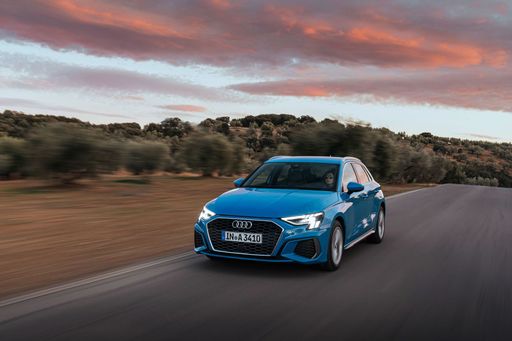 @ audi-mediacenter.com
@ audi-mediacenter.com
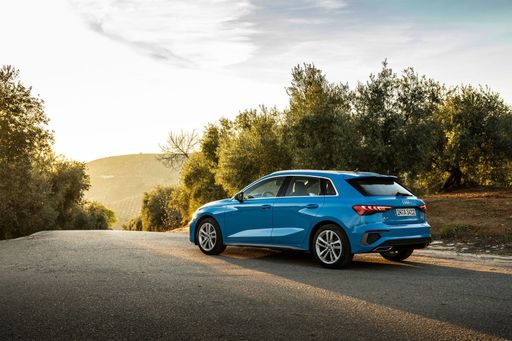 @ audi-mediacenter.com
@ audi-mediacenter.com
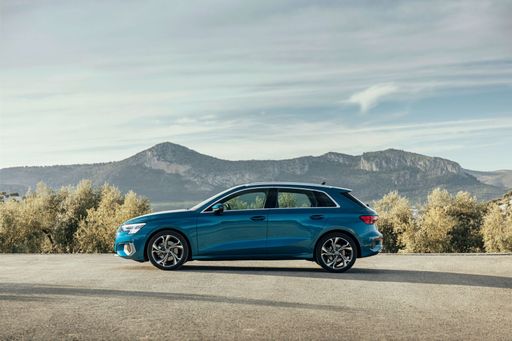 @ audi-mediacenter.com
@ audi-mediacenter.com
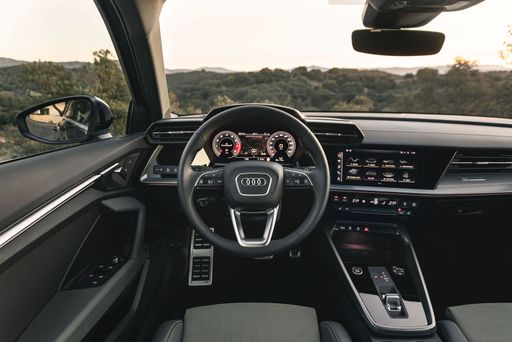 @ audi-mediacenter.com
@ audi-mediacenter.com
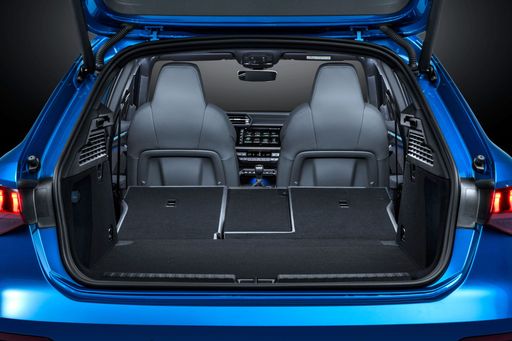 @ audi-mediacenter.com
@ audi-mediacenter.com
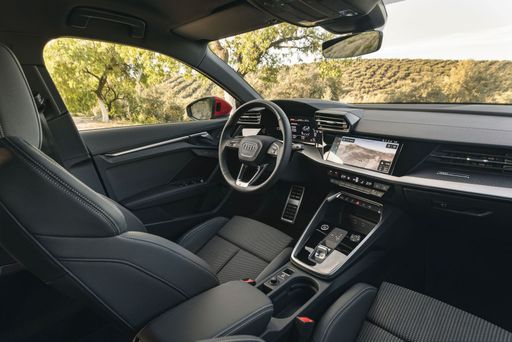 @ audi-mediacenter.com
@ audi-mediacenter.com
VW ID.7
The VW ID.7 represents a significant step forward in Volkswagen's electric vehicle lineup, offering an elegant design combined with advanced technology features. This electric saloon showcases a sleek aerodynamic profile, prioritising both performance and efficiency. Inside, drivers will appreciate the spacious and modern cabin, equipped with intuitive controls and connectivity features for a seamless driving experience.
details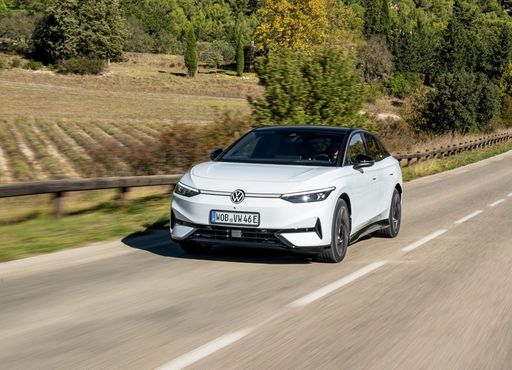 @ Volkswagen.de
@ Volkswagen.de
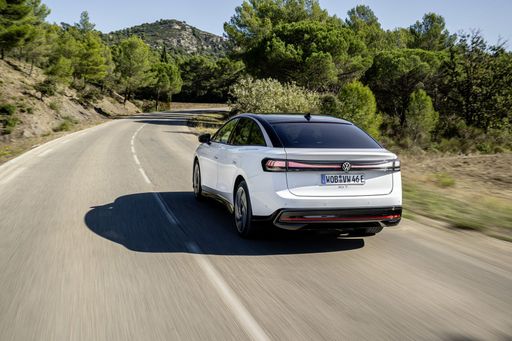 @ Volkswagen.de
@ Volkswagen.de
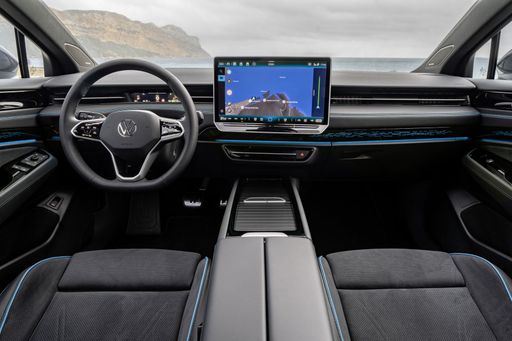 @ Volkswagen.de
@ Volkswagen.de
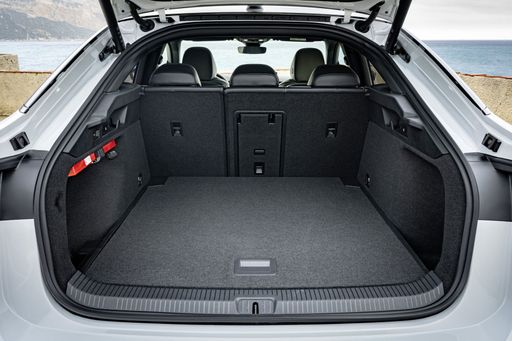 @ Volkswagen.de
@ Volkswagen.de
In today's competitive automotive landscape, the comparison between combustion-engine vehicles and electric alternatives is more pertinent than ever. Here, we pit the Audi A3 Sportback against the Volkswagen ID.7, representing two distinct philosophies in modern engineering. While one leans on tried-and-true combustion power, the other embraces the electric future. Let’s delve deeper into their technical specifications and innovations.
Design and Dimensions
The Audi A3 Sportback maintains a classic hatchback silhouette, featuring a sporty yet sophisticated design. With a length of 4353 mm and a width of 1816 mm, it boasts compact dimensions that enhance maneuverability while providing ample interior space.
In contrast, the VW ID.7 boasts a more substantial presence on the road, measuring in at 4961 mm in length and 1862 mm in width. Its sleek, aerodynamic shape not only improves aesthetics but also contributes to its efficiency. The ID.7 stands taller at 1536 mm, offering a commanding view of the road and ample headroom for passengers.
Powertrains and Performance
The Audi A3 Sportback comes with a versatile range of engine options, including petrol, diesel, and plug-in hybrid variants. Its engines produce between 116 hp and a robust 400 hp in the performance-oriented models. The A3's acceleration from 0-100 km/h ranges significantly, with the quickest versions achieving this in as little as 3.8 seconds. The multiple drivetrain options (front-wheel and all-wheel drive) offer flexibility for different driving needs.
On the electric side, the VW ID.7 offers impressive power with a choice of 286 hp or 340 hp for its performance variants, delivering a swift 0-100 km/h in as little as 5.4 seconds. The ID.7's rear-wheel or all-wheel drive options enhance its driveability, especially in varying weather conditions. Both vehicles showcase their unique engineering excellence while catering to different consumer preferences.
Efficiency and Range
When it comes to fuel efficiency, the Audi A3 Sportback impresses with its economical consumption rates, ranging from 4.8 to 9.3 L/100 km depending on the engine choice and driving style. The plug-in hybrid variant further enhances this with electric capabilities, granting a short electric-only range of up to 143 km.
In stark contrast, the VW ID.7 offers a substantial electric range of up to 709 km on a single charge, thanks to its larger battery capacity of up to 86 kWh. With energy consumption figures as low as 13.6 kWh/100 km, the ID.7 underlines the efficiency of electric mobility. Both models embrace their unique approaches to fuel economy, catering to different utilizations and driver habits.
Comfort and Practicality
Inside, the Audi A3 Sportback offers a luxurious and tech-laden environment, equipped with high-quality materials and a user-friendly infotainment system. Its trunk capacity of 380 liters suits everyday needs. The seating for five ensures that passengers enjoy both comfort and convenience during journeys.
The VW ID.7, on the other hand, stands out with its spacious interiors and a trunk capacity that leads the segment at 532 liters. Comprising five seats, the cabin layout is designed with a focus on sustainability, featuring significant use of recycled materials to enhance its eco-friendly appeal.
Innovative Features
Both vehicles are packed with a range of innovative features. The Audi A3 Sportback integrates advanced driver assistance systems, including adaptive cruise control and lane-keeping assist, enhancing driver confidence and safety.
The VW ID.7, however, takes innovation a step further with its fully digital cockpit and comprehensive connectivity options, allowing for OTA updates and integration with smart home systems. This positions it as a frontrunner in the realm of automotive technology.
Conclusion
The comparison between the Audi A3 Sportback and VW ID.7 reveals two distinct philosophies in automotive design—one rooted in tradition and combustion, the other boldly electrifying the landscape. Whether you prioritize the performance and luxury of the A3 or the eco-innovative approach of the ID.7, both vehicles offer appealing reasons to choose them as your next automotive companion.

|

|
|
|
|
Costs and Consumption |
|
|---|---|
|
Price
26800 - 56600 £
|
Price
46300 - 54100 £
|
|
Consumption L/100km
0.3 - 9.3 L
|
Consumption L/100km
-
|
|
Consumption kWh/100km
-
|
Consumption kWh/100km
13.6 - 16.2 kWh
|
|
Electric Range
135 - 142 km
|
Electric Range
595 - 709 km
|
|
Battery Capacity
19.70 kWh
|
Battery Capacity
77 - 86 kWh
|
|
co2
6 - 211 g/km
|
co2
0 g/km
|
|
Fuel tank capacity
40 - 55 L
|
Fuel tank capacity
-
|
Dimensions and Body |
|
|---|---|
|
Body Type
Hatchback
|
Body Type
Hatchback
|
|
Seats
5
|
Seats
5
|
|
Doors
5
|
Doors
5
|
|
Curb weight
1360 - 1685 kg
|
Curb weight
2184 - 2328 kg
|
|
Trunk capacity
280 - 380 L
|
Trunk capacity
532 L
|
|
Length
4352 - 4381 mm
|
Length
4961 mm
|
|
Width
1816 - 1851 mm
|
Width
1862 mm
|
|
Height
1415 - 1470 mm
|
Height
1535 - 1536 mm
|
|
Payload
410 - 480 kg
|
Payload
456 - 462 kg
|
Engine and Performance |
|
|---|---|
|
Engine Type
Petrol, Petrol MHEV, Diesel, Plugin Hybrid
|
Engine Type
Electric
|
|
Transmission
Manuel, Automatic
|
Transmission
Automatic
|
|
Transmission Detail
Manual Gearbox, Dual-Clutch Automatic
|
Transmission Detail
-
|
|
Drive Type
Front-Wheel Drive, All-Wheel Drive
|
Drive Type
Rear-Wheel Drive, All-Wheel Drive
|
|
Power HP
116 - 400 HP
|
Power HP
286 - 340 HP
|
|
Acceleration 0-100km/h
3.8 - 10.1 s
|
Acceleration 0-100km/h
5.4 - 6.6 s
|
|
Max Speed
205 - 250 km/h
|
Max Speed
180 km/h
|
|
Torque
220 - 500 Nm
|
Torque
545 - 679 Nm
|
|
Number of Cylinders
4 - 5
|
Number of Cylinders
-
|
|
Power kW
85 - 294 kW
|
Power kW
210 - 250 kW
|
|
Engine capacity
1498 - 2480 cm3
|
Engine capacity
-
|
General |
|
|---|---|
|
Model Year
2025
|
Model Year
2023 - 2024
|
|
CO2 Efficiency Class
D, B, F, E, G
|
CO2 Efficiency Class
A
|
|
Brand
Audi
|
Brand
VW
|
Audi A3 Sportback
Audi A3 Sportback: A Blend of Performance and Innovation
The Audi A3 Sportback has continually established itself as a standout model in the compact car segment, embodying elegance, performance, and cutting-edge technology. With its sleek design and advanced engineering, it appeals to drivers seeking both practicality and an exhilarating driving experience.
Engine Options and Performance
The A3 Sportback boasts a versatile lineup of engines, featuring petrol, mild-hybrid, and diesel variants. Power outputs range from 116 PS to a robust 400 PS in the high-performance RS3 variant. This extensive range of engines ensures that there is a model to suit every driver’s needs, whether for daily commuting or spirited driving.
The A3 Sportback's efficient diesel engines are noteworthy, with consumption figures as low as 4.8 L/100 km, making them a fantastic choice for those looking to save on fuel costs without sacrificing performance. Furthermore, the petrol engines demonstrate a perfect balance between power and efficiency, thanks to modern technologies like turbocharging and direct injection.
Hybrid Technology
Innovations in hybrid technology are another highlight of the A3 Sportback. The mild-hybrid variants utilise a belt-driven starter-generator and a compact lithium-ion battery, enabling seamless energy recovery during braking. This technology enhances fuel efficiency, particularly in urban settings, contributing to reduced CO2 emissions and lower running costs.
Transmission and Handling
The A3 Sportback is available with both manual and automatic transmission options, including Audi's renowned S tronic dual-clutch system. This system offers lightning-fast gear changes and an engaging driving experience. The choice between front-wheel drive and the quattro all-wheel-drive system further enhances the appeal, providing excellent traction and stability across various driving conditions.
Interior Comfort and Technology
Inside, the Audi A3 Sportback does not disappoint. The interior combines high-quality materials with a driver-focused layout, ensuring comfort for all occupants. With generous space for passengers and luggage, it remains practical for everyday use. The intuitive MMI infotainment system is equipped with features such as smartphone integration, advanced navigation options, and a premium sound system, making every journey enjoyable.
Safety and Driver Assistance Features
Safety is paramount in the A3 Sportback, which features an array of driver assistance systems designed to enhance safety and convenience. From adaptive cruise control to lane-keeping assistance, these technologies not only assist drivers but also help in averting potential hazards on the road. The vehicle’s robust build and advanced airbag systems further ensure the protection of its occupants.
Conclusion
The Audi A3 Sportback continues to impress with its combination of dynamic performance, innovative technology, and luxurious comfort. With a range of powertrains and features that cater to diverse needs, it stands as a testament to Audi's commitment to automotive excellence. For anyone in the market for a premium compact car, the A3 Sportback remains a top contender, blending style, substance, and sustainability effortlessly.
VW ID.7
Introducing the VW ID.7: A Game-Changer in the Electric Car Market
The VW ID.7 represents Volkswagen's commitment to innovation and sustainability in the automotive market. This all-electric vehicle stands out not only for its sleek design but also for its impressive array of technological advancements. In this article, we delve into the technical specifications and innovations that make the ID.7 a remarkable addition to Volkswagen's electric vehicle lineup.
Power and Performance
Under the bonnet, the VW ID.7 is powered by a range of electric motors, offering horsepower between 286 and 340 PS. This provides the perfect blend of power and efficiency, making it an ideal choice for both city driving and long-distance journeys. With a top speed of 180 km/h and a lightning-fast acceleration from 0 to 100 km/h in just 5.4 seconds, the ID.7 doesn’t compromise on performance.
Impressive Range and Efficiency
The VW ID.7 redefines what it means to travel efficiently. Depending on the model, the ID.7 offers an electric range between 595 and 709 km on a single charge, setting new benchmarks for the industry. With energy consumption as low as 13.6 kWh per 100 km, it is one of the most energy-efficient vehicles in its class, making it both environmentally friendly and cost-effective for everyday use. The ID.7 boasts a CO2 efficiency class of A, reflecting its zero-emission status.
Advanced Technology and Safety Features
Volkswagen has equipped the ID.7 with cutting-edge technology designed to enhance the driving experience. The car features advanced driver assistance systems, including adaptive cruise control and lane-keeping assistance. Moreover, its infotainment system is state-of-the-art, offering seamless connectivity and a user-friendly interface. Safety features are also top-notch, ensuring peace of mind for drivers and passengers alike.
Design and Comfort
The ID.7's design is both futuristic and practical. Its streamlined body provides a stylish exterior, while the interior is spacious and comfortable, accommodating up to five passengers effortlessly. With a generous boot capacity of 532 litres, there is plenty of storage for all your needs. The ID.7’s dimensions, measuring 4961 mm in length and 1862 mm in width, make it a substantial vehicle that commands attention on the road.
Efficient Price Point
Despite its high-tech features and impressive performance, the VW ID.7 maintains a competitive price range, starting from €53,995. This makes it accessible to a wide range of customers seeking an eco-friendly vehicle without breaking the bank. Additionally, with monthly costs ranging between €1,197 and €1,372, it's a practical choice for those considering long-term electric vehicle ownership.
Conclusion
In conclusion, the VW ID.7 is a testament to innovation in the electric vehicle sector. Its combination of power, range, and technology sets a new standard for what drivers can expect from an electric car. As Volkswagen continues to pave the way for electric mobility, the ID.7 stands as a beacon of what's possible when cutting-edge technology meets sustainable driving practices.
Which drive types are available for the Audi A3 Sportback?
Available as Front-Wheel Drive or All-Wheel Drive.
The prices and data displayed are estimates based on German list prices and may vary by country. This information is not legally binding.
